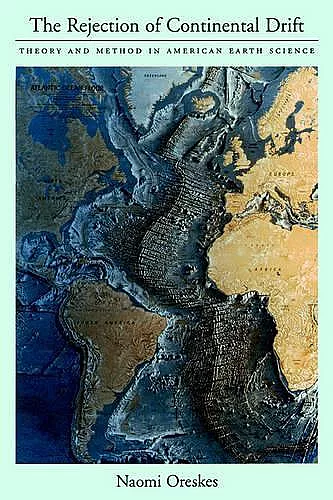The Rejection of Continental Drift
Theory and Method in American Earth Science
Format:Paperback
Publisher:Oxford University Press Inc
Published:1st Jul '99
Currently unavailable, and unfortunately no date known when it will be back

In the early 20th century, American earth scientists vociferously opposed the new, and highly radical, notion of continental drift. Yet 50 years later the same idea was heralded as a major scientific breakthrough, and today continental drift is accepted as a scientific fact. Why did American geologists reject so adamantly an idea that is now considered a cornerstone of the discipline? And why did they react so much more negatively than their European counterparts? This book, based primarily on archival resources, provides answers to these questions. It complements existing work on continental drift and the emergence of the theory of plate tectonics by providing the first detailed historical account of the American geological community in the 1920s. It also challenges previous historical work on this episode, much of which ascribes the rejection of continental drift to the lack of an adequate causal mechanism. Instead, the author shows that the rejection was largely based on the view that continental drift challenged the basic methodological principles and standards of practice in American earth science. In uncovering the historical roots of this debate, the author seeks to clarify the relationship between scientific practice and theory while also providing a test case for related philosophical questions.
Oreskes's book contains much pertinent information that will be useful to those interested in the history of tectonics in the twentieth century, and she presents it lucidly, in a well-organized manner. * ISIS *
ISBN: 9780195117332
Dimensions: 164mm x 217mm x 30mm
Weight: 644g
432 pages